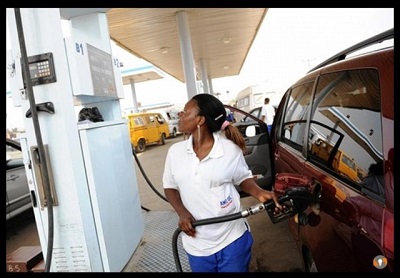File Photo
The Lagos chapter of Nigeria Union of Petroleum and Natural Gas Workers (NUPENG) has threatened to commence an indefinite strike over an alleged unlawful sack of its members Delta and Warri.
Mr Tayo Aboyeji, the Chairman of the council who disclosed this to newsmen said that the development was sequel to an alleged forceful evacuation of about 3,000 workers from the rigs by five drilling oil rigs.
He said the rigs are being operated by Sterling Energy Exploration Company, SEEPCO, and its drilling arm, British Oil and Gas Limited (BOGEL) in Kwale and Warri areas of Delta.
NAN reports that the National President of NUPENG, Prince Williams Akporeha had on Thursday gave the Nigerian Army 24-hours ultimatum to withdraw its officers from the premises of SEEPCO, and BOGEL to avert nationwide strike.
Akporeha alleged that the oil firms used the military to forcefully evacuate and abruptly terminate workers’ appointments following their (oil firms) refusal to allow unionisation.
In his reaction, Aboyeji said that members of the union in the zone would also withdraw their services in protest of the “unfortunate situation” if the sacked workers were not reinstated.
According to him, if the government refuses to call the oil firms to order, they will embark on a strike to fight the injustice and denial of the members’ rights.
“NUPENG is one and an injury to one is injury to all. On our own, we cannot watch while our members are being sacked just because the company did not want our members to be unionised.
“We will not condone victimisation of our members by the Nigeria Army or who ever gave them the directive it is the right of the workers to be unionise.
“When has it become a norm for the military to go to a company and decide whether a worker should join a union or not, this is purely a civil and industrial matter.
“Soldiers must vacate the company immediately and let the issue of the industrial matter be resolved between the union and the management of SEEPCO.
“Otherwise the Lagos zone which comprises six states in Southwest and Kwara would be forced to join the action in solidarity with members in Delta and Warri zone,” the union leader said.
The chairman, however, said that the zone was not issuing any ultimatum but rather imploring the general public to prevail on Nigeria Army to withdraw their officers from the company.
“The failure would make our members in all branches including the petroleum tanker drivers to down tool,” Aboyeji said.
Aboyeji who urged the Federal Government to allow union activities to take place, advised management of SEEPCO to allow workers to join the union since it is their right.
The NUPENG chairman, who urged the management of SEEPCO to reinstate the 3000 sacked workers, said the zone was ready in solidarity with the affected members, take action.
He also urged the Lagos State government to prevail on the task force on Apapa gridlock to stop the alleged harassment, brutalisation and extortion of the union members.
He advised the government to expedite action on the repair of Apapa roads to reduce incessant gridlock in the area.
Meanwhile, the Nigerian National Petroleum Corporation (NNPC) has allayed fears of possible hiccups in petroleum products supply in parts of the country following an ultimatum issued by NUPENG over a purported intervention by an arm of the security agencies in what the union viewed as purely labour matters involving a company and its workers in Delta State.
Mr. Ndu Ughamadu, NNPC Group General Manager, Group Public Affairs Division, , in a statement on Friday in Abuja, said the corporation’s Group Managing Director, Dr. Maikanti Baru and his Management team, were engaging the parties involved, saying the parties are close to resolving the issues.
Mr. Ughamadu advised motorists and other consumers of petroleum products not to engage in panic buying as the NNPC Management was close to reaching an amicable resolution of the challenge.
NNPC assured that the corporation had adequate storage of petroleum products across the country, advising that they should not entertain any fear of petroleum shortages.






